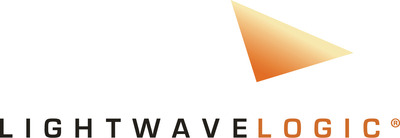Lightwave Logic Demonstrates Thought Leadership with Critical Contributions to Global Integrated Photonics Industry Roadmap
- Lightwave Logic contributes to the IPSR-I to advance integrated photonics technology.
- The company's involvement in key chapters underscores the importance of electro-optic polymers in photonics.
- Dr. Michael Lebby highlights the role of global collaboration in shaping the future of the photonics industry.
- Lightwave Logic's commercial material supply agreement signals a promising future in photonics technology.
- None.
Integrated Photonics System Roadmap Defines and Creates Future PIC Technology and Systems Requirements for Industry that Span out to 2040
Led by foundation PhotonDelta and the Microphotonics Center at the Massachusetts Institute of Technology (MIT), the IPSR-I is based on the highly influential semiconductor industry roadmap that outlined research priorities and has enabled the semiconductor industry to navigate Moore's Law for integrated photonics. These non-competitive industry roadmaps also serve stakeholders, investors and research analysts as a resource for industry trends, research, and commercial opportunities.
More than 400 technology, academic and industrial organizations from around the world contributed to IPSR-I. The IPSR-I describes a route toward building a global, aligned integrated photonics industry with the ability to help solve major societal challenges. It includes a comprehensive overview of major technology gaps for volume manufacturing of photonic integrated circuits (PIC) and a detailed analysis of the challenges that the integrated photonics industry needs to overcome to achieve its potential.
Lightwave Logic was instrumental in two chapters of the IPSR-I, serving as co-chair of the "Transceivers" chapter and chair of the "Polymers" chapter. The company also contributed to the "Interconnects" chapter. 'Transceivers' are a critical commercial pluggable optical engine, for example in hyperscaler datacenters, telelcom networks, and high-performance computing. 'Interconnects' focuses on optical fiber links that connect pluggable optical transceivers together for routers, switches, computational systems etc. 'Polymers' focuses on active electro-optic polymers for optical modulators as well as passive polymers that guide and manipulate light in fiber optic communications markets.
"We were privileged to be invited to contribute to the updated IPSR-I to establish and sustain a trust based global network of industrial and R&D partners, working together to create PIC technology and systems requirements," said Dr. Michael Lebby, Chairman and Chief Executive Officer of Lightwave Logic. "These requirements comprise the commercial factors that will compose and grow the accelerating photonics industry going forward for all companies, with our focus on our Perkinamine® Electro-Optic polymers. The integrated photonics roadmaps both plan and anticipate commercial opportunities as well as potential roadblocks and/or critical needs on the way to scaling the manufacturing of integrated photonics through 2040. The silicon semiconductor industry has relied on these types of roadmaps for the past 50 years and with IPSR-I, the photonics industry is becoming organized and more influential as well."
"With our first commercial material supply and license agreement for our electro-optic polymer materials and ongoing efforts to build on this commercialization momentum, we continue to believe Lightwave Logic will become a stronger technological and commercial leader in the photonics industry," concluded Lebby.
About Lightwave Logic, Inc.
Lightwave Logic, Inc. (NASDAQ: LWLG) develops a platform leveraging its proprietary engineered electro-optic (EO) polymers to transmit data at higher speeds with less power in a small form factor. The company's high-activity and high-stability organic polymers allow Lightwave Logic to create next-generation photonic EO devices, which convert data from electrical signals into optical signals, for applications in data communications and telecommunications markets. For more information, please visit the company's website at www.lightwavelogic.com.
Safe Harbor Statement
The information posted in this release may contain forward-looking statements within the meaning of the Private Securities Litigation Reform Act of 1995. You can identify these statements by use of the words "may," "will," "should," "plans," "explores," "expects," "anticipates," "continue," "estimate," "project," "intend," and similar expressions. Forward-looking statements involve risks and uncertainties that could cause actual results to differ materially from those projected or anticipated. These risks and uncertainties include, but are not limited to, lack of available funding; general economic and business conditions; competition from third parties; intellectual property rights of third parties; regulatory constraints; changes in technology and methods of marketing; delays in completing various engineering and manufacturing programs; changes in customer order patterns; changes in product mix; success in technological advances and delivering technological innovations; shortages in components; production delays due to performance quality issues with outsourced components; those events and factors described by us in Item 1.A "Risk Factors" in our most recent Form 10-K; other risks to which our company is subject; other factors beyond the company's control.
Investor Relations Contact:
Lucas A. Zimmerman
MZ Group - MZ North America
949-259-4987
LWLG@mzgroup.us
www.mzgroup.us
![]() View original content to download multimedia:https://www.prnewswire.com/news-releases/lightwave-logic-demonstrates-thought-leadership-with-critical-contributions-to-global-integrated-photonics-industry-roadmap-302115206.html
View original content to download multimedia:https://www.prnewswire.com/news-releases/lightwave-logic-demonstrates-thought-leadership-with-critical-contributions-to-global-integrated-photonics-industry-roadmap-302115206.html
SOURCE Lightwave Logic, Inc.








